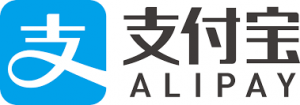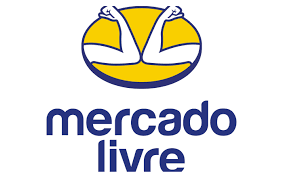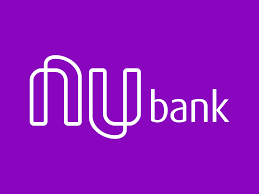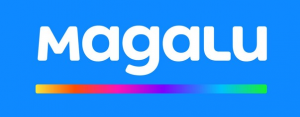Messaging, delivery, shopping, and financial services – this was the route adopted by WeChat in China to galvanize into a super-app.
WeChat began functioning as a messaging app and began selling games. Deliberately they continued adding services until they broke into the retail sector. This transformed the platform into a marketplace for messaging and financial services.
It came to a point where you could manage your account, buy stuff, check prices, or buy in the physical realm than just sending and receiving messages.
The super apps WeChat and Alipay have turned into an integral part of the Chinese mobile ecosystem.
WeChat accounts for over 1 billion monthly active users (MAU) and Alipay a billion annual active users (AAU). Both offer a slew of services such as food delivery, bike sharing, financial services like payment, insurance and investments.
Chinese Super Apps Role Model For The Rest

Now, firms around the world have role models to replicate the success of Chinese apps in their region. Latin America has all the necessary constituents to nurture super apps such as a compelling and fertile region for the emergence of super apps due to its vast population of 650 million distributed in countries with similitudes in respect to language, culture and religion.
It also has a commendable mobile population with 64% owning smartphones.
Brazil is an attractive destination for super-apps due to the prospect of offering micropayments aiming the unbanked population. The most promising sectors according to the mavens for super apps should ideally include retail, health and mobility.
The COVID-19 pandemic pushed folks to engage with mobiles for food delivery and grocery shopping. People spent more time on their mobiles to keep themselves engaged due social distancing to avoid contagion. App downloads in Brazil grew by 25% during the pandemic. Food delivery applications increased 220%, and banking apps by 24%.
One of the pandemic’s outcomes is the rise of super apps in Latin America, which is basically proffering a large number of activities on the same platform. Magazine Luiza, Mercado Libre, WhatsApp, and Rappi are some of the region’s entities that are making beeline in this business model.

The idea behind a super app is to enable users to use a single app for myriad needs. This affords convenience to the user to purchase a gamut of products and services easily. It also betters user experience as the consumer is pre-maturely well-versed with the app and it meets their tastes and preferences. For the company, it is serendipity as the user spends most of his/her time in the platform.
How Super Apps Spread Their Wings

The inconceivable success of WeChat and Alipay emboldened many companies globe-over to emulate their model in different regions. Southeast Asia is one of the world’s first regions where super apps started appearing initially. The Singaporean ride-hailing Grab and the Indonesian Go-Jek have both raised billions to successfully thwart the expansion of Uber in their region.
They also succeeded in expanding their own portfolio of services beyond ride-hailing, food delivery, services, social media, payments and novae services.
It is interesting to note that not all super apps rise from analogous backgrounds. Alipay rose out of ecommerce and is focusing more on financial services. While WeChat had messaging as their pedestal before expanding into financial services. WeChat then went on to add services such as ecommerce, gaming, travel and other domains.

Go-Jek and Grab began with ride-hailing and then added delivery before embracing financial services. While payTM started as a prepaid recharge platform and then moved on to offer a range of financial and daily services.
What Can Turn On Latin America?
Latin American super apps should develop themselves in a manner that is conducive to their environment which is way different from China.
The app ecosystem in the region is highly influenced by US and European firms that dominate domains such as communication, music, search and several others. It is difficult for local start-ups to compete in such niches. However, there are few battlefields that are difficult to domineer remotely such as ride-hailing, food delivery and finance.
Those are highly regulated industries that require on-the-ground approach. They are also nearly impossible to scale across nations. Those are precisely the industries where we see the emergence of super apps. This would be fueled by exceptional amount of venture capital investment.
Rappi

The most prominent contender to garner super app status in the LATAM region is the Colombian on-demand delivery application Rappi. This is a highly funded start-up in Latin America that is backed the likes of SoftBank, Sequoia, and Andreessen Horowitz.
Rappi at inception began offering food delivery and now provides a host of services such as payments, electric scooters, P2P transfer, movie tickets and a debit card. They have their operations in relevant countries such as Peru, Brazil, Colombia, Mexico, Argentina, Uruguay and Chile.
Other Competitors In The Race
Mercado Libre (MELI)

Another strong candidate is hulk Mercado Libre (MELI) with Mercado Pago occupying the financial faction in ecommerce. They began by enabling payments between users in the marketplace. Then they went on to offer financial services such as bill payments - online and offline, and investment (through its Mercado Fondo).
Thanks to their antecedents, they are pretty much all over Latin America, and process around 400 million transactions yearly.
Movile

The Brazilian Movile is also positioning itself as an able competitor in Latin America. Having operations within Brazil, Mexico, Colombia and Argentina, they deal with a diverse portfolio of services such as food delivery, ticket for events, courier and Netflix for kids.
They have raised $395 million investment as of now and their subsidiary iFood raised a total of $592 million.
Cabify

The Spanish Cabify is also in the chase to position itself as a super app. It recently started to offer bike service, e-scooters, deliveries and financial services through its own fintech company, Lana. But Cabify will have to diversify their portfolio to gain Super App status even though they raised $477 million. Foraying into ride-hailing is a good move but the competition is getting crowded in the region.
Uber and Didi are worthy competitors who are adding fascinating services and positioning themselves for growth.
Nubank

Nubank would be an interesting contestant as it already has more than 8 million customers in their fold in Brazil. This Brazilian decacorn (firms with $10 billion valuation) is beginning to multiply operations into Mexico, Argentina and Colombia. Nubank offers only traditional financial services but has Tencent as a significant investor and having raised US$1.1 billion till date could help them in the long run.
It wouldn’t come as a surprise if they tend to follow the well-beaten path as plotted by WeChat.
Banco Inter

Banco Inter, also from Brazil recently launched a marketplace to expand its offerings beyond financial services into ecommerce, travel and more. The bank is a public company with $7 billion valuation that is now backed by SoftBank after its latest share offer.
MagaLu

There are other players too who could spring a surprise, such as Magazine Luiza, leading retail and ecommerce in Brazil. They are transforming themselves from a brick-and-mortar retail store to a tech-backed company. They have already proved their intent to transform MagaLu (its app) into a super app by scheduling many other services.
Although they could make some headway in the Brazilian market, there are doubts if they have to clout to transform into a regional player as the primary business operations cover only Brazil.
These are the well-positioned candidates aiming to be super apps in Latin America.
Super apps in Latin America will not mimic their Chinese counterparts
Even we are seeing the rise of the super apps in Latin America, rest assured they will not chart the Chinese route as the markets there are quite different. A better comparison could be with the Southeast Asian players as the markets are much similar.
However Latin American’s super apps will probably be the ramification of the unique environment that belongs to that region.
As more companies are looking and studying the Chinese success stories to take inspiration, we will probably see even more players competing to become super apps in Latin America. The venture capitalists seem to fathom on whom to place their bets regarding those with the necessary DNA to win the race to gain super app status in Latin America.
One thing is certain: It will be exhilarating to see how the market unfolds, but the writing’s on the wall — the customer will be the true winner in this battle.


No comments:
Post a Comment